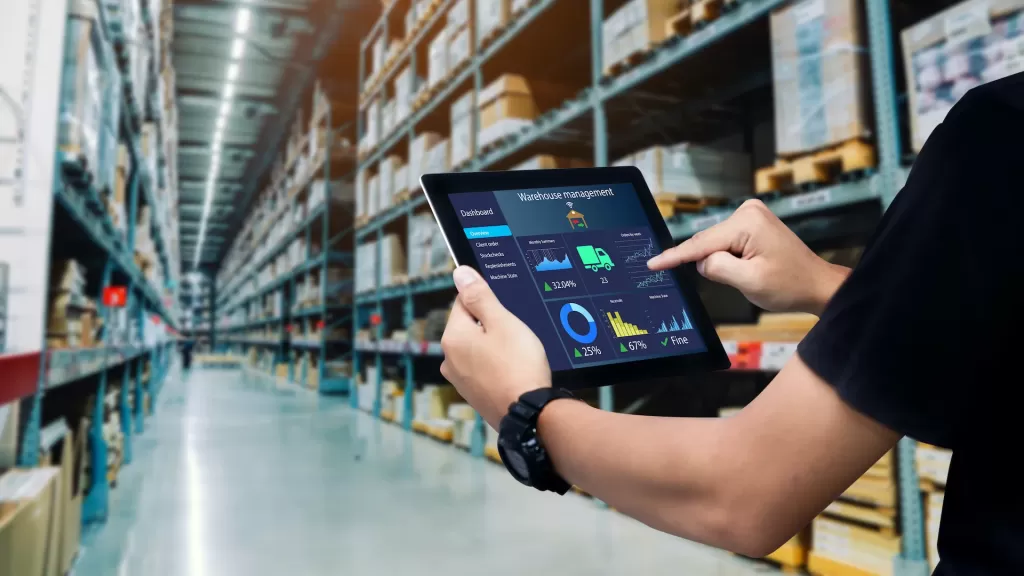Written By:
Scott McAuley
Scott is the IT Director of Texas Management Group, and has been in the IT industry for 25 years.
Running a small logistics operation can feel like a constant balancing act, especially when it comes to managing technology. The right Logistics IT Support can make all the difference, but are you using it efficiently?
In today’s fast-paced industry, even small operations need streamlined, reliable IT systems to keep things moving smoothly. That’s where understanding the best practices for Logistics IT Support comes into play.
This article will guide you through 12 essential tips that can help you unlock efficiency, improve workflows, and stay ahead of the competition.
Ready to take your logistics IT game to the next level? Let’s dive into the must-know practices for boosting your operation’s success.
Key Takeaways
- Cloud-based IT solutions offer scalability and flexibility, allowing small logistics operations to grow seamlessly without major infrastructure overhauls.
- Prioritizing network security measures protects sensitive logistics data from cyber threats, ensuring a secure and reliable operation.
- Regularly backing up critical data prevents data loss and ensures that essential information is recoverable in case of system failures or cyberattacks.
- Automation tools streamline routine tasks, like inventory tracking, freeing up IT resources to focus on strategic initiatives and improving overall efficiency.
- Continuous system monitoring and clear IT support protocols help detect potential issues early, while defining response times improves problem resolution and operational stability.
Table of Contents
The Importance of Logistics IT Support in Small Operations

In small logistics operations, effective IT support is essential to ensure smooth and efficient processes.
With limited resources, it becomes even more critical to have reliable systems that can prevent disruptions and handle unexpected issues swiftly.
IT support helps optimize key logistics functions like inventory management, shipping, and tracking. By streamlining these areas, small businesses can reduce costs, improve delivery times, and enhance overall customer satisfaction.
Additionally, IT solutions can help small operations scale up as demand grows. Scalable technology ensures businesses can expand without overhauling their systems, saving time and money.
Cybersecurity is another key benefit of strong IT support. Protecting sensitive data and preventing cyberattacks keeps operations secure and builds trust with customers and partners.
Furthermore, automated systems powered by IT support can handle routine tasks more efficiently. This allows employees to focus on more strategic roles, improving productivity and operational success.
For small logistics businesses, integrating and maintaining IT systems is not just a choice but a necessity. The right IT infrastructure ensures businesses stay competitive, adaptive, and prepared for growth in an increasingly digital world.
12 Best Practices for Logistics IT Support in Small Operations
For small logistics operations, having reliable IT support is essential for smooth business operations. With limited resources, it’s important to adopt cost-effective and scalable IT solutions that ensure efficiency and security.
Below are 12 practical IT best practices that can help streamline logistics operations and support long-term growth:
| Best Practices | Key Focus |
|---|---|
| Implement Cloud-Based Solutions | Scalability and flexibility |
| Prioritize Network Security Measures | Protect sensitive data |
| Regularly Backup Critical Data | Prevent data loss |
| Use Automation Tools for Routine Tasks | Increase efficiency |
| Ensure Real-Time Tracking of Inventory | Optimize inventory management |
| Integrate All IT Systems | Seamless communication and operations |
| Train Staff in IT Best Practices | Reduce IT-related errors |
| Set Up Reliable Remote Access | Ensure off-site problem-solving ability |
| Perform Regular Software and Hardware Audits | Maintain up-to-date systems |
| Monitor Systems Continuously | Prevent potential issues |
| Collaborate with Vendors for Quick IT Support | Ensure faster problem resolution |
| Establish Clear IT Support Protocols | Improve response times and efficiency |
1. Implement Cloud-Based Solutions for Scalability
Small logistics operations can benefit from cloud-based IT solutions to easily scale as business grows. These systems offer flexible storage and real-time access to important data.
2. Prioritize Network Security Measures
Strong network security is crucial to protect sensitive logistics data. Regularly updating firewalls and using encryption can prevent unauthorized access.
3. Regularly Backup Critical Data
Frequent backups ensure that important logistics data is never lost. Automated backup systems can help secure essential files without manual intervention.
4. Use Automation Tools for Routine Tasks
Automation can improve efficiency by handling repetitive tasks like inventory tracking. This allows IT staff to focus on more strategic support roles.
5. Ensure Real-Time Tracking of Inventory
Real-time tracking systems give immediate updates on stock levels. These systems help reduce the risk of overstocking or stockouts, improving overall operations.
6. Integrate All IT Systems for Seamless Operations
Integration of various IT platforms streamlines processes across departments. A unified system ensures better communication and fewer operational disruptions.
7. Train Staff in IT Best Practices
Training logistics staff on IT best practices can help avoid common technical errors. Well-trained staff can troubleshoot minor issues, minimizing downtime.
8. Set Up Reliable Remote Access for Key Personnel
Remote access solutions ensure that critical personnel can resolve issues even when off-site. Secure remote access can prevent delays in problem-solving.
9. Perform Regular Software and Hardware Audits
Routine audits can identify outdated or failing equipment before it causes downtime. This proactive approach helps maintain smooth logistics operations.
10. Monitor Systems Continuously for Potential Issues
Continuous monitoring tools alert IT teams to problems before they escalate. Automated alerts ensure rapid responses to system vulnerabilities.
11. Collaborate with Vendors for Quick IT Support
Having strong relationships with IT vendors can reduce response times for technical support. Quick access to expertise ensures minimal disruption during outages.
12. Establish Clear IT Support Protocols and Response Times
Defining support protocols ensures everyone knows how to handle IT issues. Clear response times help set expectations and improve overall efficiency.
Conclusion
Efficient IT support is crucial for small logistics operations, helping streamline workflows and reduce downtime. By adopting cloud-based solutions, enhancing security, and leveraging automation, businesses can optimize daily operations.
Regular system audits and continuous monitoring are key to preventing issues before they escalate, ensuring smooth, uninterrupted service. Clear IT protocols also help staff respond quickly to challenges.
With these best practices, your logistics operation can stay competitive and adaptable as it grows. Start applying them today to unlock greater efficiency.
Looking for tailored IT support? Contact us to explore how we can help enhance your logistics systems.
Need IT Solutions That Work for Your Small Logistics Firm?
Browse our blogs for best practices in the logistics industry. Our logistics IT solutions provide the tailored support you need to enhance operations and efficiency.
Reach out today to take the first step toward optimized logistics IT management!
FAQ
What are the Key Best Practices for Improving IT Support Efficiency in Small Logistics Operations?
Best practices include automating routine tasks, investing in reliable software, and ensuring proactive system monitoring.
How can Small Logistics Companies Benefit From Streamlined IT Support?
Streamlined IT support reduces downtime, improves communication, and enhances overall operational efficiency.
Which IT Solutions are Essential for Enhancing Productivity in Logistics Operations?
Essential IT solutions include fleet management software, real-time tracking systems, and cloud-based communication tools.
What are Common Challenges Faced by Small Logistics Companies in Managing IT Support?
Common challenges include limited resources, outdated technology, and cybersecurity risks.






